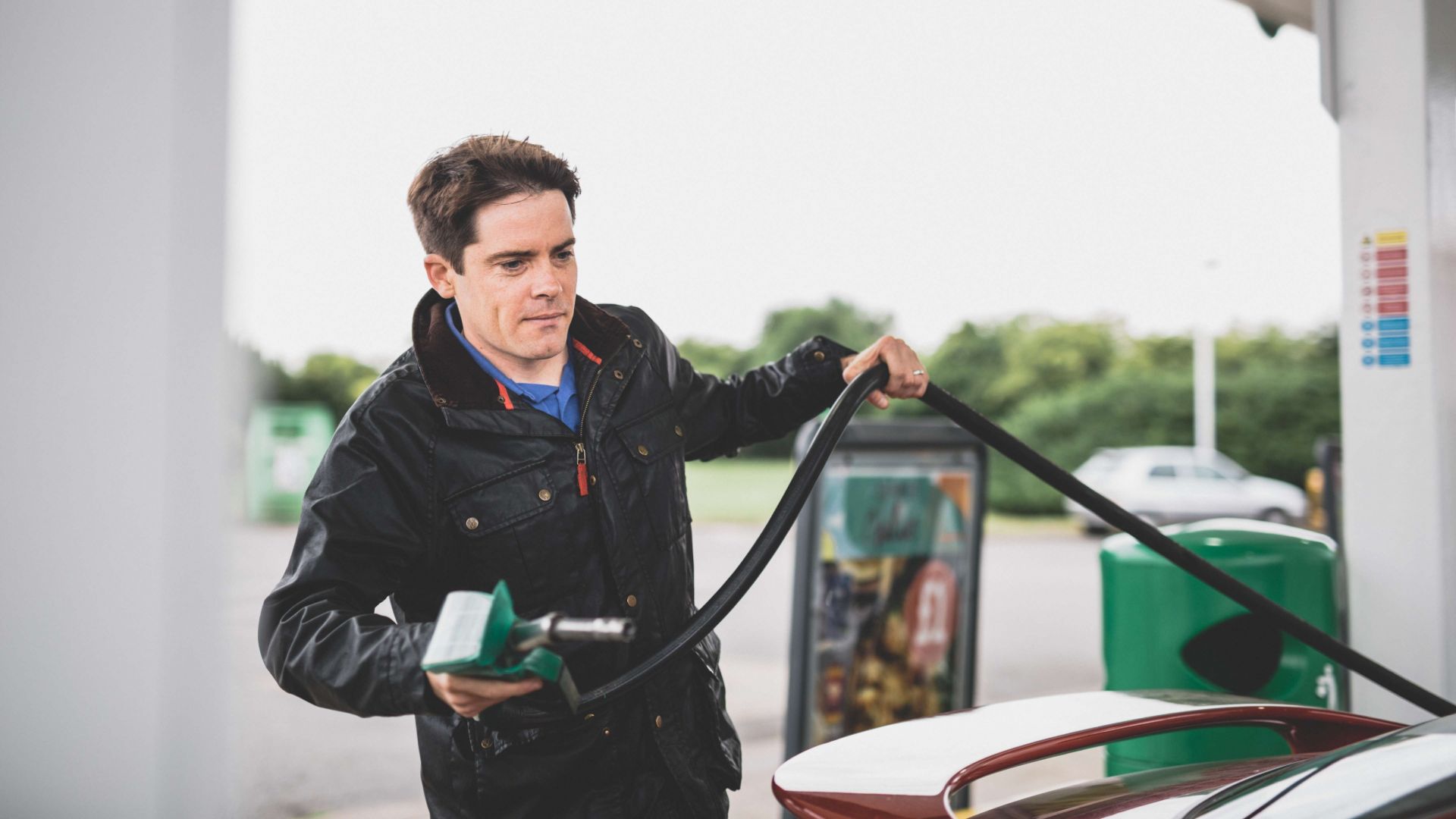
Fuel retailers will be forced to publish live prices to prevent drivers from being overcharged, the government has stated. The proposed change in the law comes after UK motorists were found to have paid an additional 6p per litre for petrol and diesel at supermarkets in 2022 – equivalent to £900 million in extra costs.
Although the major supermarkets, including Asda, Tesco, Sainsbury’s and Morrisons, were still generally the cheapest places to buy fuel, the Competition and Markets Authority found these retailers’ profit margins had increased hugely due to a lack of competition.
“We’ll shine a light on rip-off retailers to drive down prices and make sure they’re held to account by putting into law new powers to increase transparency,” said Energy Security Secretary, Grant Shapps.
In the meantime, you can already spend less on fuel by tracking down the best prices in your area. A few pence per litre can add up to a significant monthly saving. Read on for our comprehensive guide to finding the cheapest petrol and diesel near you.
Price comparison websites
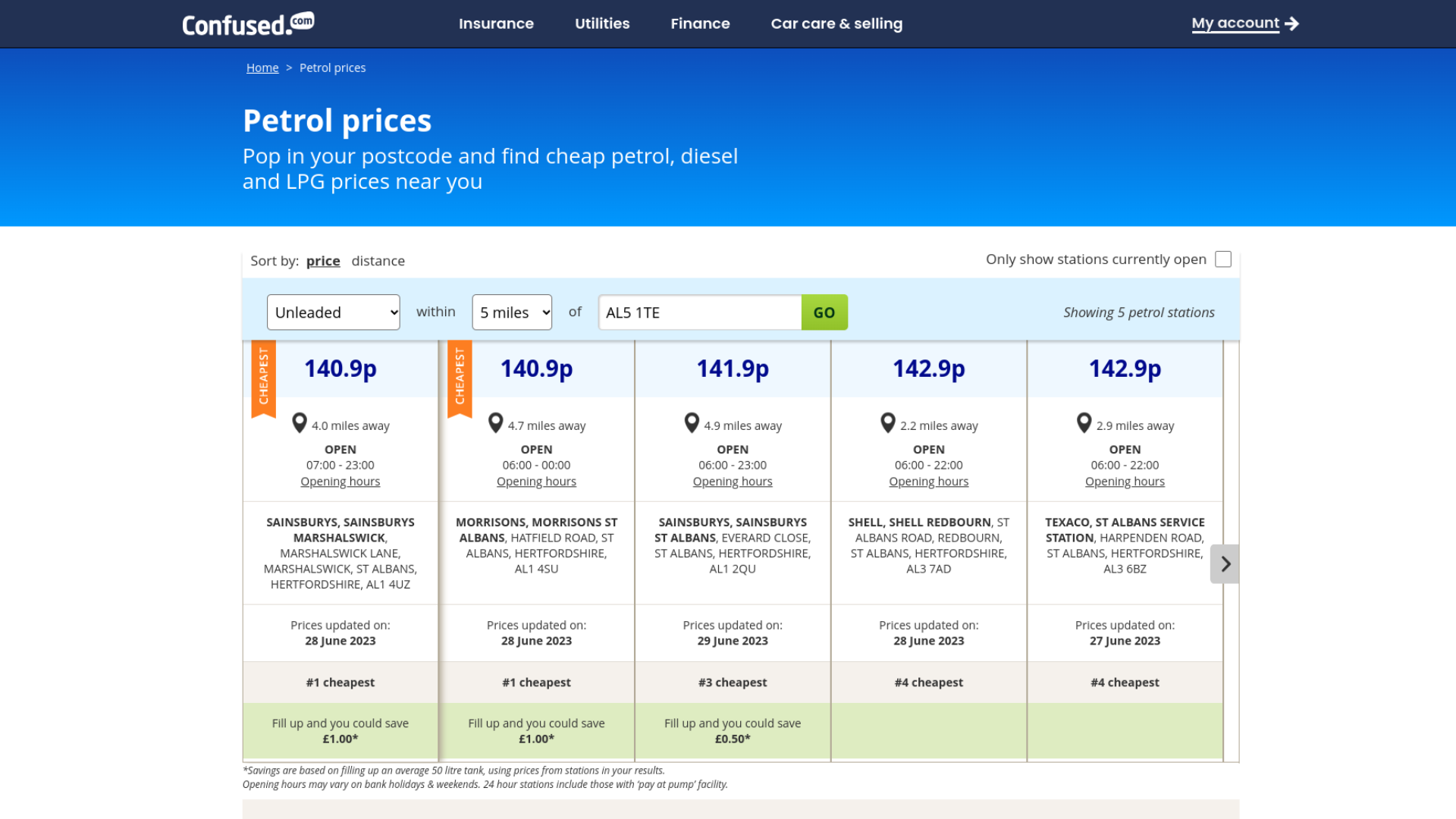
Price comparison website Confused.com has a dedicated cheapest fuel price finder tool (pictured above).
Sign up for free, pop in your postcode, tick whether you want fuel stations that are open at that particular time and away you go. It’s a clean and crisp facility. The weekly update could catch you by surprise if there’s a sudden price hike mid-week, though.
That said, the cheapest fuel station tends to stay the cheapest, regardless of across-the-board rises. The main drawback of this tool is that you’ll have to search for your chosen fuel station separately on a map.
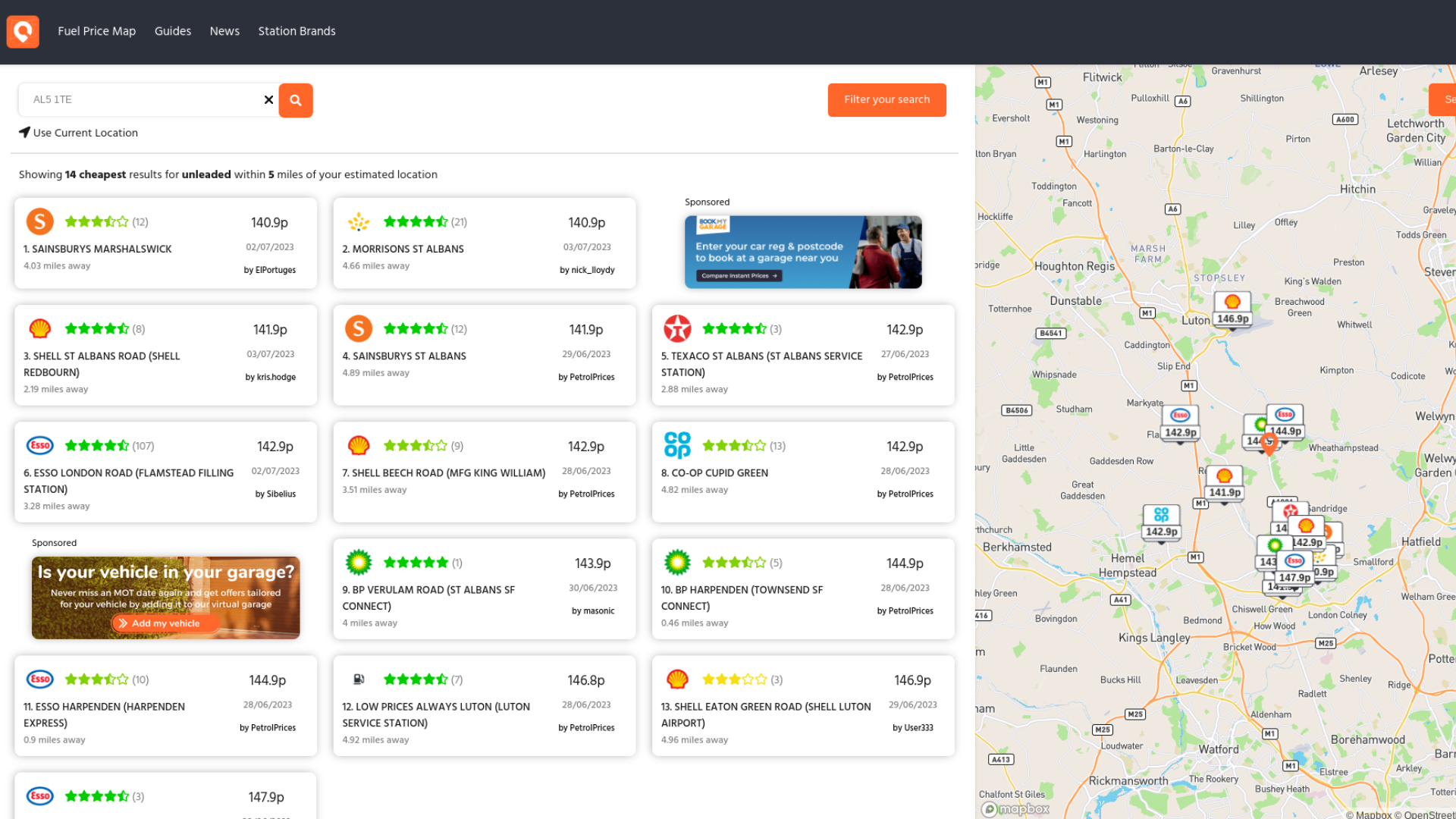
That’s where Petrolprices.com (pictured above) comes in. Like Confused, you enter your postcode, but the filling stations appear on a map within a radius around your chosen starting point. It seems the best of the website-based facilities that feature a map.
Where the Petrolprices website falters is in its clunkiness (we suspect due to the ads), but there is also a free mobile phone app you can download. The average user is claimed to save £200 a year on fuel fill-ups.
Waze

Waze is a free user-supported navigation app for Apple and Android smartphones. Accident alerts, roadworks, speed camera locations and more are fed in as contributions from people using Waze, thus keeping information up to date for the entire user base.
That user contribution-based system isn’t limited to route planning, either. One incredibly useful feature is the fuel station finder complete with, you guessed it, prices to match.
If the BP up the road is a bit pricey, Waze might show you a Sainsbury’s nearby that is 5p-a-litre cheaper. We are dealing with pennies here, of course, but if you have a long journey ahead, you’d save £2.50 on a 50-litre fill-up.
What are the drawbacks? Well, depending on where you are, the user-supported nature can be patchy. In busy urban areas, it’s great. Savvy commuters are always online, keeping the information fresh on all of the above, including fuel prices.
Find yourself further out in the countryside, however, and it falters. The user base is Waze’s most precious resource and if that dries up, so does Waze. The ads can also get irritating, but it’s a handy first port of call to have installed on your phone.
Connected cars
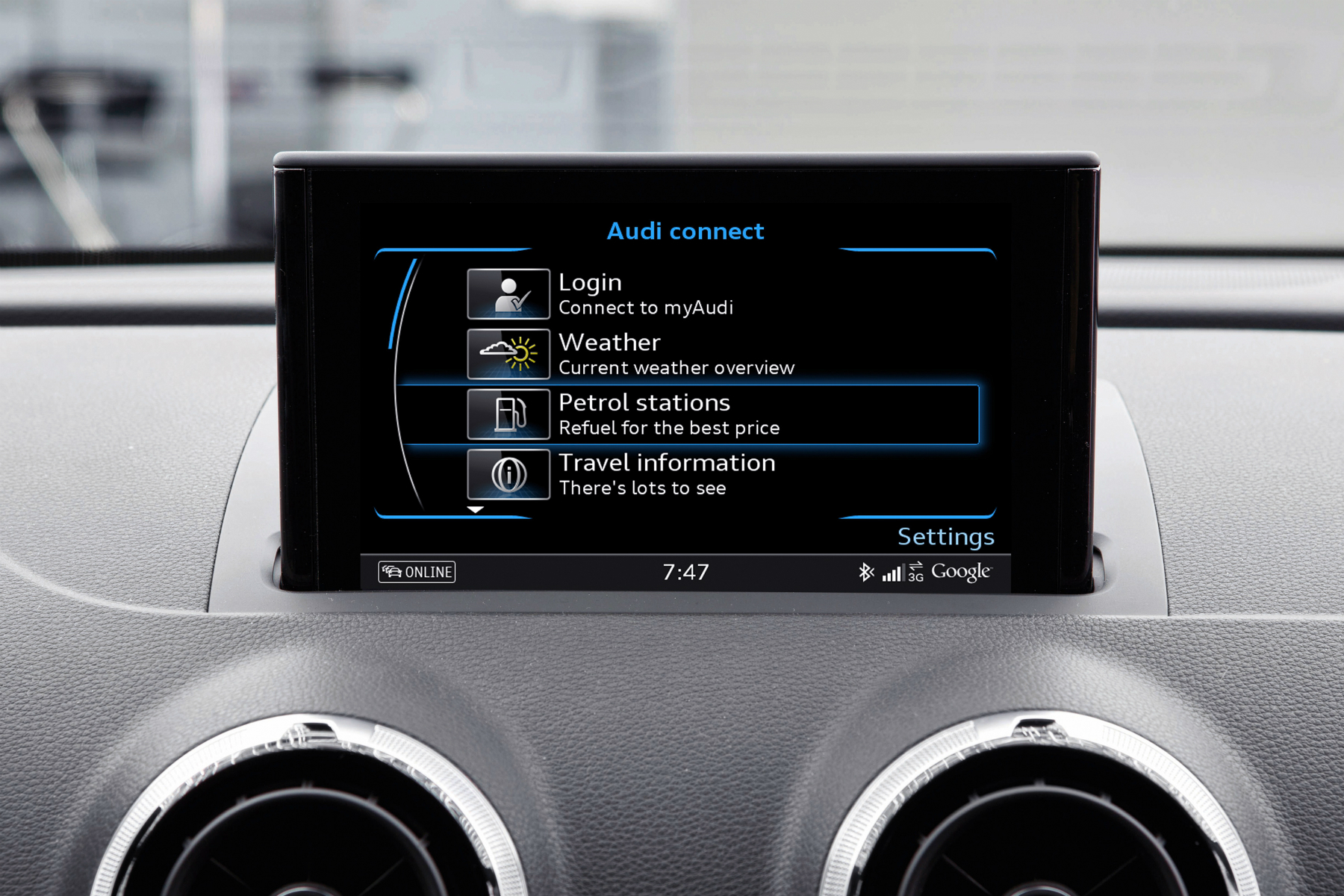
If you’re in a new car with internet connectivity via the infotainment system – an Audi equipped with Audi Connect, for instance – your route to the cheapest fuel in your area could be very swift indeed.
Audi utilises an online database to find fuel stations with the cheapest fuel options for you. Simply follow your way through the infotainment to the petrol stations icon, where it says ‘Refuel for the best price’.
Many manufacturers have taken similar measures to get connected and now offer comparable services – it’s worth asking the salesman as you shop around for the best car deals.
Know your fuel brands
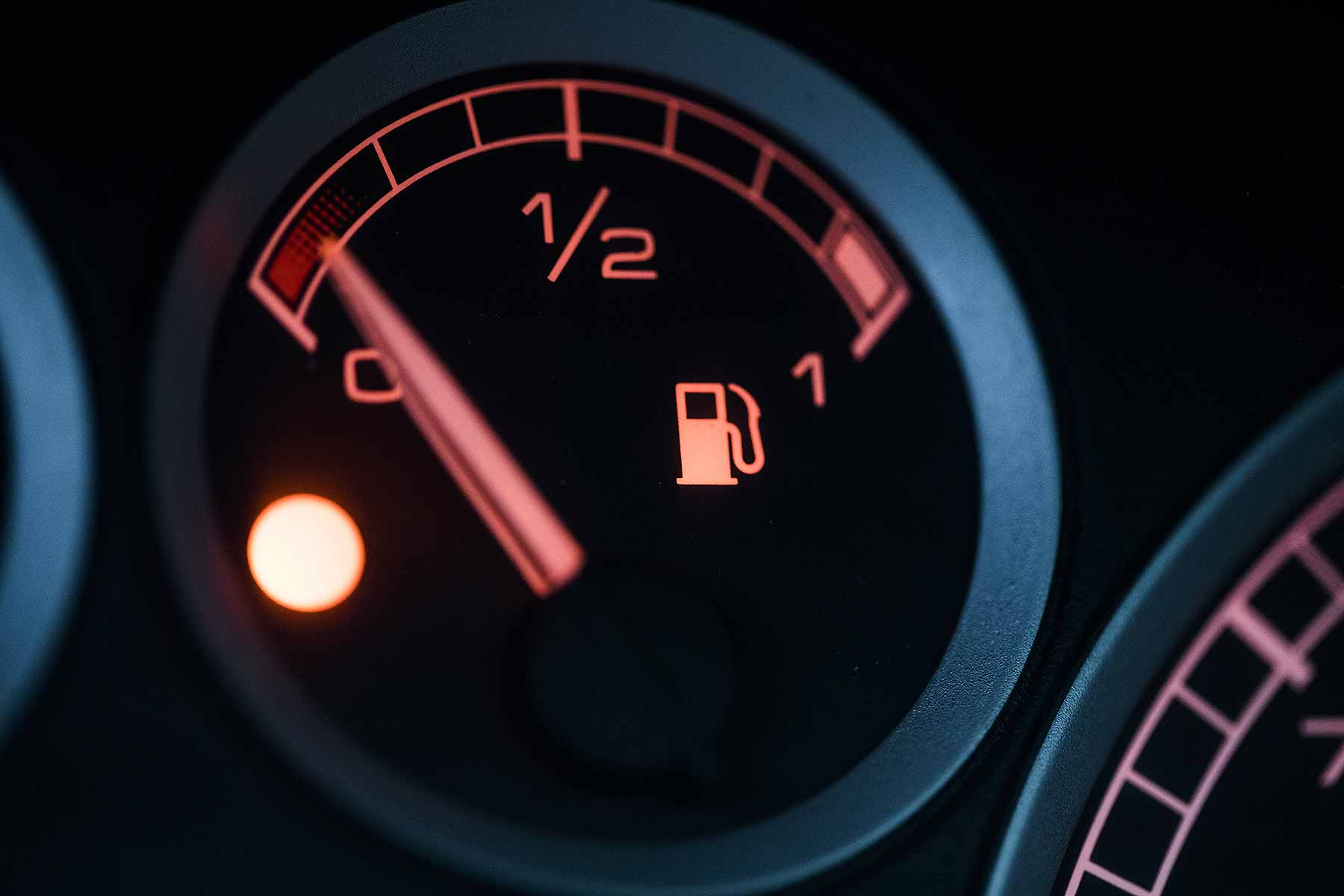
One thing it’s easy to overlook is a knowledge of fuel station brands. As mentioned, a general rule is that supermarket filling stations are cheaper than branded stops such as Shell, BP and Esso. Especially if you’re in the market for super unleaded.
The AA produces a regular report on fuel prices, and the results make for interesting reading. The average at supermarkets is nearly always cheaper than the national average. Asda regularly sets the standard for fuel price-cuts.
A rule of thumb? Stay well away from motorway service stations unless you want to pay a huge premium for a litre over literally anywhere else.
So, if you’re in an unfamiliar area and want a safe bet on cheap fuel, simply ask someone where the local supermarket filling station is.
ALSO READ:
Is it illegal to run out of fuel on the motorway?
Is there any quality difference between brands? Do some brands include cleaners or lubricants or Redex type additives? and will therefore affect the price.
What a disastrous website. Allowing cookies should be as easy as not allowing.
waze is a joke and is always out of date. I have travelled 5 miles to fill up and it has been more expensive than my local. Its never updated properly